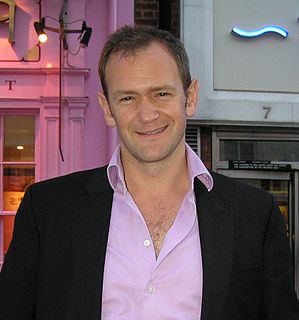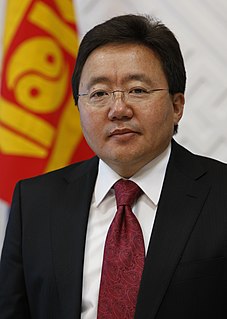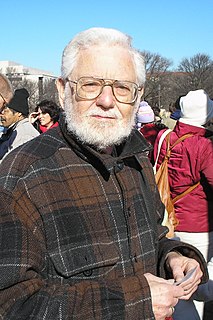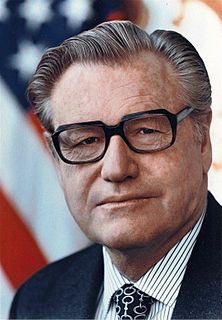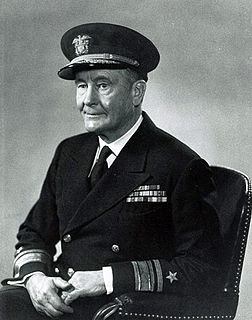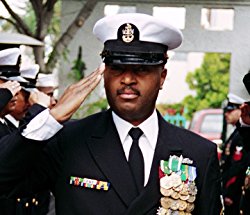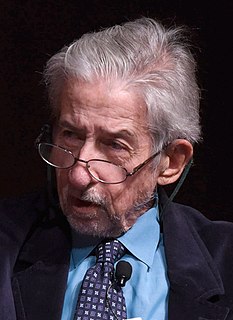Top 270 Regimes Quotes & Sayings - Page 4
Explore popular Regimes quotes.
Last updated on April 21, 2025.
I think religion and science operate in different regimes. Religion is a belief system that tries to give meaning and comprehension to peoples' lives. Science is more about the mechanics of the universe around us and the way in which it works. And I don't think those things have to be mutually exclusive.
The decentralized nature of online conversations often makes it easier to manipulate public opinion, both domestically and globally. Regimes that once relied on centralized systems of media control can now deliver ideological messages more subtly, with the help of little-known intermediaries like anonymous commenters on websites.
Under theocracies and other authoritarian regimes, the rulers are the moral authorities. Under genuine democracy some basic values are entrenched in the legal system, which is expected to be under democratic vigilance, and others are left to the person or the group, which ideally debate moral problems in a rational, free and cooperative manner.
During my many years in international business and public life, I have had the good fortune of sitting down for lunch with people with whom I completely disagreed, in practice and principle: Soviet communists, heads of state from various unsavory regimes, benighted religious figures, corrupt business leaders.
What often happens with these Islamist regimes, there are differing philosophies in terms of how fast to go in getting to where everybody wants to end up, which is Sharia. That is the ultimate objective for all of these places. But they have different strategies on the speed with which they’re going to get there, and the strategies involve foreign policy.
One by one, these governments came undone, and were forced into IMF tutelage (and national illegitimacy) by the careening oil prices, the debt imbroglio, and falling terms of trade. The last of these governments to fall were the Communist regimes of eastern Europe, which have now gone the way of other Third World countries. The second in the cascade of bifurcations is thus symbolized by 1989.
Regimes planted by bayonets do not take root... Our military strength is a prerequisite to peace, but let it be clear we maintain this strength in the hope it will never be used, for the ultimate determinant in the struggle that's now going on in the world will not be bombs and rockets but a test of wills and ideas, a trial of spiritual resolve, the values we hold, the beliefs we cherish, the ideals to which we are dedicated.
"Hypercoherence" is one of the most dangerous threats to the long-term survival of our civilization. Hypercoherence is the close efficient linkage of all parts of the world economic, communication and transport systems. It has been crucial in the spread of great innovations, the rise of world wealth, and even the dissemination of democratic concepts and ethical values and the defeat of oppressive regimes.
When the Islamic revolution began in 1979 under the leadership of Ayatollah Khomeini, it aroused considerable admiration in the Arab street. It presented a model of organised popular action that deposed one of the region's most tyrannical regimes. The people of the region discerned in this revolution new hope for freedom and change.
I felt implicated in American affairs.Outraged at the blatant lies about Iraqs involvement in al Qaeda, at the regimes arrogance and stupidity, Guantnamo Bay and all the rest of it. But the poems at the start of District and Circle Anahorish 1944, The Aerodromearent particularly aimed as criticism. On the contrary, there's a recognition of the big contribution to world order made in Europe during World War II.
Weak logic, inconsistencies and alienation from the people are common features of authoritarianism. The relentless attempts of totalitarian regimes to prevent free thought and new ideas and the persistent assertion of their own rightness bring on them an intellectual stasis which they project on to the nation at large. Intimidation and propaganda work in a duet of oppression, while the people, lapped in fear and distrust, learn to dissemble and to keep silent.
Certainly I have more in common with Bernie Sanders than differences. I think if you had to look for differences, you would find them in foreign policy, where my campaign is perhaps more critical - I would say definitely more critical - of funding for regimes like that of the Netanyahu government, which are clearly war criminals.
Countries that need monies so that they can provide health care and education and shelter to their people shouldn't have to repay debts that we knowingly lent to bad regimes long since gone; and all illegitimate debts - debts lent to these terrible dictators like Saddam Hussein, like Suharto, like Marcos - must also be canceled.
If, however, you have richer pursuits in mind and know that no woman should be judged by how she looks - that everything she brings to the party is more important than the size of her arse - then refuse to be sucked into the never ending whirligig of self-doubting, self-hating madness that is stop-start dieting and crazy new exercise regimes.
Countries that work with Europe should feel safer than they would if they worked with non-democratic regimes. Why isn't Europe building infrastructure in Africa instead of leaving it to the Chinese? Why haven't we succeeded in promoting the economic development of our neighbors in the Balkans, instead conceding these countries to growing Russian influence? In an uncomfortable world, we Europeans can no longer sit back and wait for the U.S.A.
Britain has always been a good citizen in the world. We rightly provide a safe haven for people fleeing political persecution by brutal regimes. Our legal system is often seen as a beacon for the rest of the world, with people coming from all over to study it and embed its principles into their own systems.
The promotion of human rights cannot be about exhortation alone. At times, it must be coupled with painstaking diplomacy. I know that engagement with repressive regimes lacks the satisfying purity of indignation. But I also know that sanctions without outreach -- condemnation without discussion -- can carry forward only a crippling status quo. No repressive regime can move down a new path unless it has the choice of an open door.
In our age of digital connection and constantly online life, you might say that two political regimes are evolving, one Chinese and one Western, which offer two kinds of relationships between the privacy of ordinary citizens and the newfound power of central authorities to track, to supervise, to expose and to surveil.
For far too long the world's poorest people have seen no benefit from the vast natural resources in their own backyards. It is time to end the injustice where ordinary people are silent witnesses, left to suffer without basic services, as the profits from their countries' assets are hidden and plundered by corrupt regimes.
There is a need to employ public memory, critical theory, and other intellectual archives and resources to expose the crimes of those market-driven criminogenc regimes of power that now run the commanding institutions of society, with particular emphasis on how they have transformed the welfare state into a warfare state.
Physicians today, as human beings, are not exempt from the perverse economic pressures created by fee-for-service regimes to see more patients for shorter appointments and order more tests and procedures. If the incentives were changed to pay to foster better health outcomes, I am convinced physician behavior would change over time.
The United States does have the highest rate of incarceration in the world dwarfing the rates of even highly repressive regimes like Russia, China or Iran. This reflects a radical shift in criminal justice policy, a stunning development that virtually no one - not even the best criminologists - predicted forty years ago.
I think Trump has made it really hard for people to read, period. He's made it hard for me anyway. Part of his evil is the way it constantly distracts us, constantly upends our horizon. To leave your computer for three hours now is to miss a year's worth of drama. This is programmatic and common to other autocratic regimes of our times.
We have an international system. We all profit from it. Trade profits from it. Peace. We can travel around the world because of it. And part of that system is certain ideas, the certain ideas you can't invade other countries for no reason. You can't commit genocide. You can't - rogue regimes can't have nuclear weapons, and you can't gas your own people.
Russia and China have maintained that people prize stability over freedom and that as long as the central State creates conditions for economic growth, people will be complacent and will be willing to literally sell away their rights. In fact, this very economic growth will eventually catch up with these regimes.
We know that dismantling old oppressive regimes is a great deal faster and easier than building new flourishing democracies. Chinggis Khaan once said, 'It was easier to conquer the world on horseback than to dismount and govern.' True validation of democracy lies less in what we tear down, and more in what we build.
From 1945 to 2003, the United States attempted to overthrow more than 40 foreign governments, and to crush more than 30 populist-nationalist movements fighting against intolerable regimes. In the process, the US bombed some 25 countries, caused the end of life for several million people, and condemned many millions more to a life of agony and despair.
Everyone thinks footballers have it easy and at this time of year see loads of pictures of players relaxing on beaches and in bars but what they don't see is most of them will be doing their own fitness regimes. If you don't you will get back and you will be off the pace, might get injured and won't play football matches.
Dictatorial regimes often manage to keep themselves in power because they are recognized by foreigners as representing the state and its people, and therefore as entitled to sell the country's natural resources and to borrow money in its people's name. These privileges conferred by foreigners keep autocrats in power despite the fact that they were not elected and do not rule in the interest of the population.
I was raised in a country [South Africa] with a lot of political turmoil. I was part of a culture and a generation that suppressed people and lived under apartheid regimes. I don't know how you can come out of that and not have an awareness for the world. I think that if my life had turned out any other way and I was working in a bank, I would still feel this way about it, because there's a connection to humanity that to me is really important.
I believe the liberal international order is under assault from Russia, and from other authoritarian regimes, and it is being questioned from within the West by nationalists, by nativists, and by people who doubt our - doubt the values of the West. We've gone through periods like this before; in the '70s, after Vietnam and Watergate, and certainly in the '30s, when people thought liberal democracy was dead, and the future belonged either to the fascists or the communists.
Power is not a matter of one dominant individual or institutions, but instead manifests in interconnected, contradictory sites where regimes of knowledge and practice circulate and take hold. This way of understanding the dispersion of power helps us realize that power is not simply about certain individuals being targeted for death or exclusion by a ruler, but instead about the creation of norms that distribute vulnerability and security.
There is a great danger to the world, not only to my country [Israel] but to the United States, to the Middle East, to peace, to all of humanity, from the prospect that such regimes that brutalize its own people, that sponsors terrorism more than any other regime in the world - that this regime acquires atomic bombs is very, very dangerous.
The fundamental question for the United States is how it can cooperate to help meet the basic needs of the people of the hemisphere despite the philosophical disagreements it may have with the nature of particular regimes. It must seek pragmatic ways to help people without necessarily embracing their governments. It should recognize that diplomatic relations are merely practical conveniences and not measures of moral judgment.
We have to be vigilant on two fronts: (1) to not let our anti-imperialism lead to the defense of authoritarian regimes in the region and (2) to not let our enthusiasm for rebellion lead to cheering on the cruise missiles from US warships. These two sirens should worry us as we make our hesitant way alongside the rebirth of a New Left in the Arab world.
One of the strange things about violent and authoritarian regimes is they don't like the glare of negative publicity. If you can make them sufficiently uncomfortable, they frequently respond by doing what you need them to do in the spirit of setting people free or ceasing arrests, which has worked time and time again with PEN.
But the true threats to stability and peace are these nations that are not very transparent, that hide behind the-that don't let people in to take a look and see what they're up to. They're very kind of authoritarian regimes. The true threat is whether or not one of these people decide, peak of anger, try to hold us hostage, ourselves; the Israelis, for example, to whom we'll defend, offer our defenses; the South Koreans.
Russia is a country that has supported, propped up the worst of anti-democratic regimes in the Middle East, that has practiced - mistreated its own press, mistreated its own civil society, and economic intimidation of its neighbors, including invasion of its neighbors.I mean, this is the one country on the face of the earth with the capacity to obliterate the United States.
Military and absolutist regimes are undoubtedly well fitted to get the jump on an unsuspecting or unprepared enemy; but the history of modern warfare proves that they cannot win over representative governments in the long run, provided that people behind those governments have the heart to sustain initial punishment, and both the will and the resources to fight back.
The fact that oppressive and corrupt regimes can borrow money in the name of the whole country means that the country's future generations will be weighed down by interest and repayment burdens, even if the money has been frittered away in some frivolous way, embezzled or used for weapons to suppress the country's population.
The Arab awakening has been, up to now, a lot about freedom from dictatorial regimes - Syria, Yemen, Libya, Tunisia, Bahrain and Egypt. But once you got freedom from, then you need freedom to. Freedom from is about destroying things. Freedom to is about constructing things, constructing the rule of law.
To help students steel themselves for captivity, SERE used a variety of 'stress and duress' techniques. The military's encyclopedic knowledge of these techniques was paid for in American blood because it was gleaned from former POWs tortured by totalitarian regimes. One technique, waterboarding, was a historically well-known torture.
Neoconservatives and the Pentagon have good reason to fear the return of the Vietnam Syndrome. The label intentionally suggests a disease, a weakening of the martial will, but the syndrome was actually a healthy American reaction to false White House promises of victory, the propping up of corrupt regimes, crony contracting and cover-ups of civilian casualties during the Vietnam War that are echoed today in the news from Baghdad.
Historically during the years of the White minority regimes, the State, the national Government held this land in trust for these communities. We said, but no, why should we do that ( return the land to the communities). We didn't say return the land to particular traditional leaders, but to the communities.
With unfailing consistency, U.S. intervention has been on the side of the rich and powerful of various nations at the expense of the poor and needy. Rather than strengthening democracies, U.S. leaders have overthrown numerous democratically elected governments or other populist regimes in dozens of countries ... whenever these nations give evidence of putting the interests of their people ahead of the interests of multinational corporate interests.




















